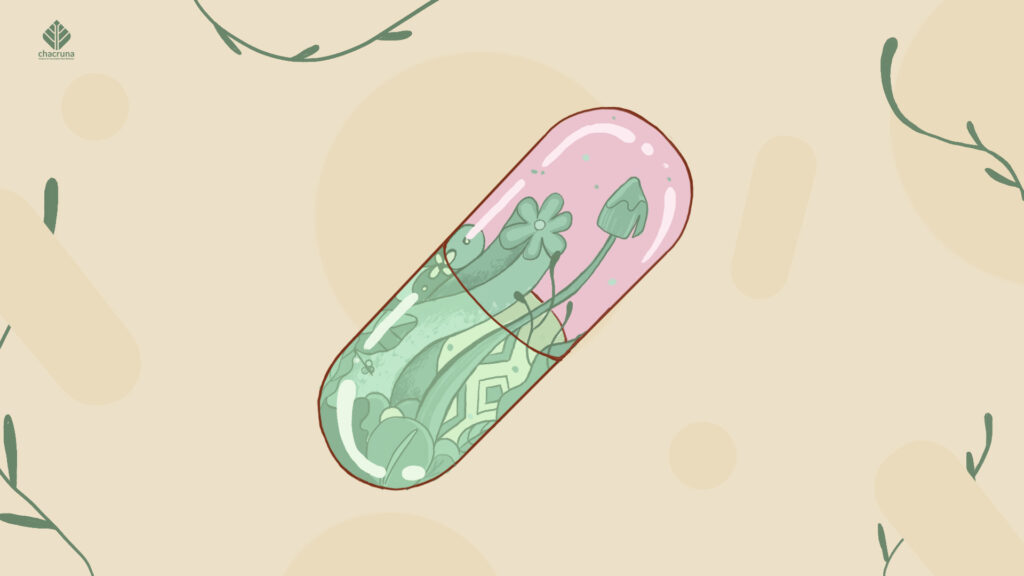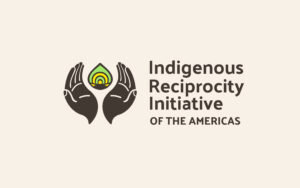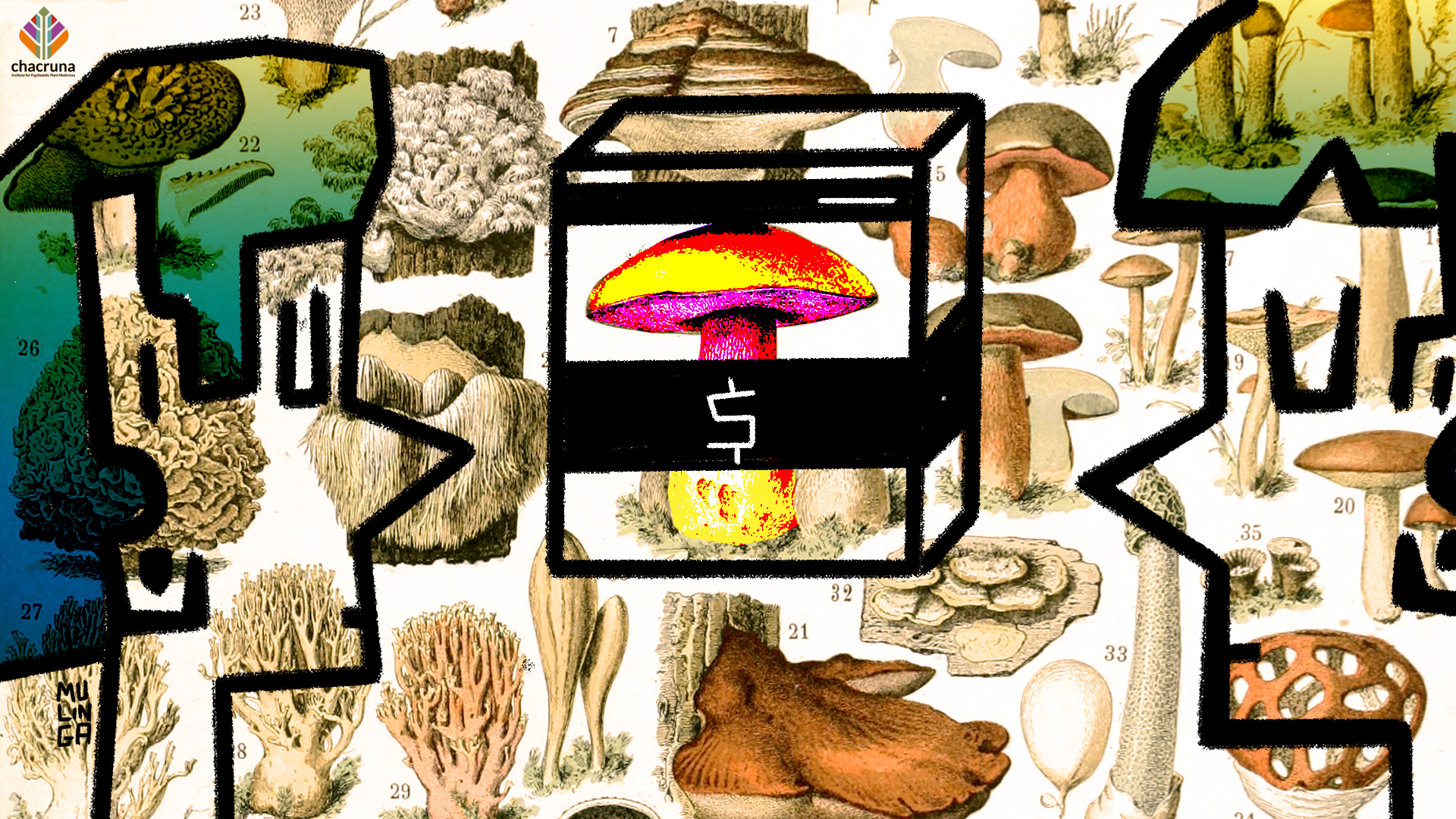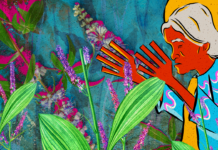- Where Is the Psychedelic Movement Headed Next? - October 15, 2024
- The FDA’s Rejection on MDMA-Assisted Therapy: What is Next for the Psychedelic Movement? - August 16, 2024
- Queering Psychedelics: An Introduction - August 7, 2024
- DEA Under Fire: Inefficiency or Resistance? - January 23, 2025
- Where Is the Psychedelic Movement Headed Next? - October 15, 2024
- Is Mainstreaming Psychedelics a Good Thing? - June 7, 2024
It is undeniable that we are witnessing a historic breakthrough in the advancement of research, policymaking, and regulation of psychedelics. In the United States, there is a growing buzz around psychedelics and the therapeutic use of plant medicines. There are today 24 states that have legalized Cannabis recreational use in the US. In 2020, Oregon became the first state to create a regulated-access model for psilocybin, and last year, Colorado decriminalized psilocybin and is creating a legal framework for the therapeutic use of psychedelics. Alongside decriminalization in many states, psychedelics, including MDMA, psilocybin, and LSD, are moving towards becoming FDA-approved medicines.
The increasing medical, therapeutic, social, and cultural acceptance of psychedelics raises a difficult question: Is mainstreaming psychedelics a good thing? Our intention here is not necessarily to answer this complex question but to use it as inspiration to present a different narrative on psychedelic science and culture, and also, to touch on controversial topics that are often neglected in our field.
The increasing medical, therapeutic, social, and cultural acceptance of psychedelics raises a difficult question: Is mainstreaming psychedelics a good thing?
Let us start by making a disclaimer that much of what we are talking about here is from a US perspective, not a Dutch or a European one. Currently, in the United States, the idea of a “psychedelic renaissance” comes from the shared notion that, after decades of relative decline due to the impacts of the scheduling of psychedelics and the War on Drugs, there is a new social, intellectual, and cultural acceptance of psychedelics. It is described almost as a second wave of the psychedelic era; this time, without the naivete of the countercultural hippie movement. The word of choice to describe this new wave is “science.” It is not about experimenting or having fun with psychedelics; but doing research, to investigate the risks and potentials of these substances and bring healing to potentially millions of people across the globe.
This narrative, although not false, does not paint the complete picture. First, it is based on the idea that the psychedelic movement was part of a cultural revolution that took place in the United States and parts of Europe in the late 1950s and the 1960s. This idea became quite widespread and naturalized. What are the impacts of this narrative that has been retold many times over, and spread far and wide? Let’s take a look at it. There are ethnic, cultural, social, and religious movements involving psychedelics whose existence does not fit this storyline. These traditions were there before and will outlast this narrative. There was never a backlash, and they are not going through a “renaissance.” We need to recognize that the idea of a psychedelic renaissance reinstates a colonialist framework based on the experiences of the Global North, which completely ignores counternarratives and the role of minorities and marginalized groups both in the Global North and the Global South.
This process of exclusion and stigmatization is not only economic and political, but epistemological as well. It is reinforced by the overemphasis on psychedelic science to the detriment of traditional forms of knowledge and also the living and diverse psychedelic traditions and cultures that gave birth to a large part of this science. The difference in status granted to biomedical research and discourse in comparison to Indigenous traditions and other fields of knowledge, such as anthropology, is often overlooked.
This process of exclusion and stigmatization is not only economic and political, but epistemological as well. It is reinforced by the overemphasis on psychedelic science to the detriment of traditional forms of knowledge and also the living and diverse psychedelic traditions and cultures that gave birth to a large part of this science.
Clinical research is frequently portrayed as the clear-cut path to legitimize psychedelics. Yet, long before the first biomedical studies on the therapeutic potential of sacred plants, historians and anthropologists were already describing the therapeutic use and properties of plant medicines in traditional settings. They have shown that the growing interest in the therapeutic potential of psychedelics cannot be dissociated from the historical use of plants and fungi for healing purposes. It is not arbitrary that medical sciences decided to investigate the healing properties of psilocybin, peyote, iboga, and ayahuasca, and it is not an accident that there are some promising results on the potential benefits. We are not trying to question the merits of psychedelic science, but instead, stressing the need for the inclusion of different narratives and forms of knowledge in this conversation, and acknowledging that science can also play a role in a narrative that reinforces colonial structures and systemic racism.
We cannot ignore that traditional and Indigenous uses of psychoactive plants frequently clash with the medical discourse and can’t be reduced to the psychological and mental paradigms of the psychedelic science developed in the Global North. Traditional forms of healing do not abide by the same standards applied to the medical industry, where efficacy is validated in RCTs which aim to nullify or control extra-pharmacological factors.

Not only that, we need to recognize that traditional notions of health, disease, therapy, medicine, and many other assumptions can vary greatly from Western notions; some other concepts do not make sense at all in traditional contexts, such as the ideas of “chemical substance” and its “effects.” Many of these traditions do not revolve around our binaries, such as body/mind, nature/culture, or matter/spirit, and we need to consider this to better understand these plants and their roles.
Another problem is the primary focus on individuals, neglecting structural forms of oppression and exclusion that are never addressed. This standpoint is supported by a White savior mentality, where Western medicine is seen as some sort of heroic agent responsible for bringing psychedelic therapies to the rest of the world and delivering its promises and potential as if it were some variety of vaccine or cure for all trauma and ailments. This narrative has been going hand-in-hand with fundraising rhetoric, as many donors feel the need to donate to something substantial and impressive.
Although we praise the advances in the medical sciences, we also recognize the current paradoxes and call for an open and balanced dialogue where more voices are included at the table and a more nuanced view is shared. We urgently need to open the door for different groups in positions of power and decision-making inside the psychedelic movement and stop making false promises of healing all of humanity and the planet. We need, more than ever, to have clear objectives and to prioritize equity, justice, and reciprocity, or else we will only reproduce the current disparities and inequalities of societies at large.
Again, as we have been saying in Chacruna: We have to seriously address the question of access and the inclusion of minorities in this movement. If this expansion occurs without providing access to marginalized groups, it will inevitably lead to the same inequalities seen in our healthcare systems, by excluding populations that require special care. This also involves efforts to lower costs and to provide more accessible means for treatment.
Although recognizing that medicalization can play a positive role in the legitimation of psychedelics, the sole focus on medical approval may create a popular impression that these are safe, maybe even benign substances, without any risks or hazards.
There is a real risk that the mainstreaming of psychedelics serves as a kind of “green lighting” in a cultural sense, as our dear colleague historian Dr. Erika Dyck reminds us. Although recognizing that medicalization can play a positive role in the legitimation of psychedelics, the sole focus on medical approval may create a popular impression that these are safe, maybe even benign substances, without any risks or hazards. Pushing pure medicalization rhetoric and practices without an adequate advancement of a cultural understanding and an educational support is problematic.
There are also economic tensions and a clear imbalance that can be seen in the huge gaps when it comes to funding in the psychedelic ecosystem. While major universities and biomedical research institutes get the lion’s share of funding opportunities, the fields of social sciences, history and botany are largely left out. Also, grassroots institutions struggle to access resources. The value of scientific research is undeniable, but the advances in scientific research cannot come at the cost of humanities, education, harm reduction, and community-focused initiatives.
We can see also that there is a clear underrepresentation of women, queer people, Indigenous peoples, people of color, and people from the Global South in the field of psychedelic science in areas of research, conferences, leadership positions in organizations, and so on. As Brazilians deeply involved for a lifetime with ayahuasca, we especially feel that if certain voices in the Global South were at the forefront of this conversation, we would have a different understanding of the challenges we face today, and alternative solutions.
However, Indigenous peoples across the Americas, as a matter of fact, often do not want be invited to psychedelic conferences or don’t feel welcomed at these; maybe that is why they have created and continue to create their own gatherings, conferences, events, and festivals to promote and strengthen their cultural, political, and environmental agenda. They, too, are worried about what is going on in the psychedelic renaissance in the Global North and with the new obsession with their traditional sacred plants. And suffering the impacts of the international appetite for these substances in their culture, spirituality, and territories.

Discover the Indigenous Reciprocity Initiative of the Americas
Another aspect has been roundly ignored. The mainstreaming of psychedelics cannot be dissociated from the power relations that inform drug policies around the world. We need to acknowledge that there is a historical debt of the Global North regarding the Global South. Countries such as the US played a key role in promoting a worldwide War on Drugs as a means to expand their political and economic influence in the Global South. We cannot ignore the devastation of Latin American countries that is fueled by the American and European markets of illegal substances. The US is rapidly decriminalizing and regulating psychedelics and other substances while washing its hands of the global impacts of the War on Drugs and the prohibitionist paradigm.
The discourse around mainstreaming leads us inevitably to the problematic notion of “scaling” and the idea that you have to “reach as many people as fast as possible,” which reproduces mainstream capitalist tropes that imply that more is always better. Have you ever heard a Shipibo shaman saying: “We need to give ayahuasca to as many people as possible as quickly as possible”? We have not. There is no urgency for mainstreaming in traditional contexts; although expansion of use might happen (also, note that expansion is not the same as mainstreaming, as much as having economical exchange is not the same as commodification.)
Let’s examine the sense of “urgency” present in some of the current rhetoric and pace of the psychedelic movement. Social, political, and environmental catastrophes are an alarming trend. In response, some folks scale up their ideas of the number and scope of problems psychedelics might heal. This shared agenda is accompanied by philanthropic pressures, which create ever-more unrealistic hyperbolic narratives of psychedelics as a panacea. These naïve and simplistic notions are a temptation, and might help or inspire some segments in the movement, or funders in the Global North to feel good and hopeful about the destiny of their dollars; however, they end up prioritizing approaches that create resistance or resentment within minority communities.
Let’s be clear: psychedelics alone cannot fix deep structural and political issues, cure the wounds of capitalism, racism, colonization, white supremacy, patriarchy, and other forms of violence and oppression! As our dear friend Indigenous activist Daira Tukano puts it, regarding the glorification of ayahuasca vine, “That is a lot of pressure to put on a simple little plant.”

If we are not aware, psychedelics can become an elite movement for the few, or an “industry.” We are already seeing the harms of the commodification and tokenization of ayahuasca. There have been cases of retreats and treatment centers in Latin America that disregard the cultural context in these regions, trying to impose their own cultural and economic practices, appropriating traditional knowledge, and sometimes even Indigenous identities to legitimize their enterprises. There is a real danger that the psychedelic renaissance becomes another capitalist endeavor that reinforces colonial practices and deepens social and economic inequalities. If “scaling” and “mainstreaming” are not planned properly and carefully thought out, this movement will only reproduce the status quo, with the advantages, power, and money accumulated in the hands of a few.
Mainstreaming psychedelics could also contribute … to problematic situations such as the proliferation of fake experts, opportunists, charlatans, cult leaders, potential abuse, and shameless commodification.
Mainstreaming psychedelics could also contribute, as Dr. Jamie Beachy frequently mentions, to problematic situations such as the proliferation of fake experts, opportunists, charlatans, cult leaders, potential abuse, and shameless commodification. The expertise in offering these substances takes years if not a lifetime to cultivate. Where is apprenticeship? Where is humility and service? These are developed over time, and in the context of psychedelics, are even more essential. How can we mainstream things fast and urgently without investing properly in training, education, harm reduction, community, and initiation? And where is the funding for that?
Also, we can’t forget to ask ourselves: are there enough natural resources for psychedelics to go mainstream? While we are celebrating the promises of psychedelics, we ignore the environmental impacts of the world ayahuasca diaspora, and the environmental risks to peyote both in Mexico and the US, and to mushrooms in places like Huautla de Jimenez in the Mexican mountains.
Skeptical of this renaissance, Native Americans have asked the psychedelic movement to stay out of regulation of peyote. And we have witnessed how the Western fervor with “magic mushrooms” has created many paradoxes in the original communities it came from. Things get worse if we consider the impacts of deforestation of the Amazon rainforest in the last decades. In Brazil alone, approximately 3 million acres of Amazonian rainforest are cut annually, at a rate that has increased over the years. In Peru, there are complaints that the ayahuasca vine has disappeared from the surroundings of numerous villages and accessible areas of the forest, obligating gatherers to travel deeper into the forest to find them. In Mexico and North America, researchers like Dawn Davis, Martin Terry, Anya Ermakova, Kevin Feeney and Diana Negrin are addressing the environmental impacts of peyote extraction. This devastation is fueled by problematic development projects like mining and mono-agriculture, as well as global consumption of the plant. There is a network for wild-harvested peyote dissemination, both as a whole plant and in powder, which allows it to travel great distances and across borders, making it accessible in ceremonies and retreats in Europe and throughout the Americas.
Wear the Movement. Explore our Collection of T-Shirts.
As we argued, the romanticization of the current landscape of the psychedelic renaissance contributes to consolidating a narrative focused on Western notions, ideals, and standards. It also contributes to the silencing of minority voices, especially of Indigenous people, ignoring that their historical legacy to the psychedelic movement was marked by colonization, subjugation, and extermination. But many marginalized voices are here to tell a different side of this story. And our role is not to be their spokesperson, but rather, their allies in the fight for recognition, reparation, reciprocity, and for their freedom to use their medicines and promote their culture.
We need to learn from the experiences of different countries and understand the challenges they are facing, such as drug tourism, a problem that affects not only the Netherlands but also South American countries, but in different ways. We need to look beyond messianic speeches and address the inequalities of the psychedelic renaissance from a global perspective if we want to build sustainable and equitable forms of knowledge and development without compromising traditional populations and the environment. We also need to address more systematically the funding gap that makes organizations like ours, Chacruna and Chacruna Latinoamérica, struggle to keep afloat and include our team members in spaces like this.
Thank you!
Note: This paper is the keynote lecture in the Interdisciplinary Conference on Psychedelic Research, Open Foundation, 6 to 8 June, 2024, PHIL, Haarlem, The Netherlands.
Art by Mulinga.
Take a minute to browse our stock:
Did you enjoy reading this article?
Please support Chacruna's work by donating to us. We are an independent organization and we offer free education and advocacy for psychedelic plant medicines. We are a team of dedicated volunteers!
Can you help Chacruna advance cultural understanding around these substances?















